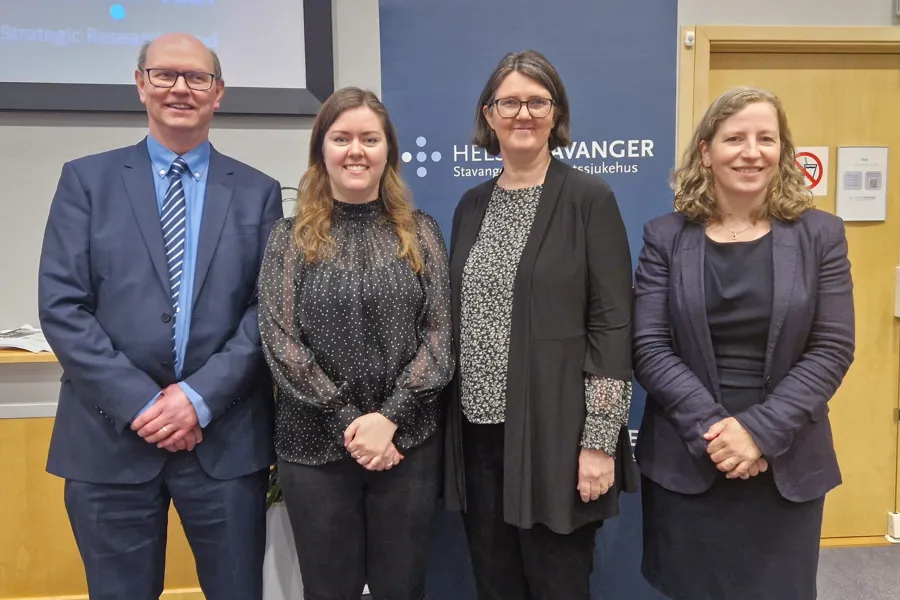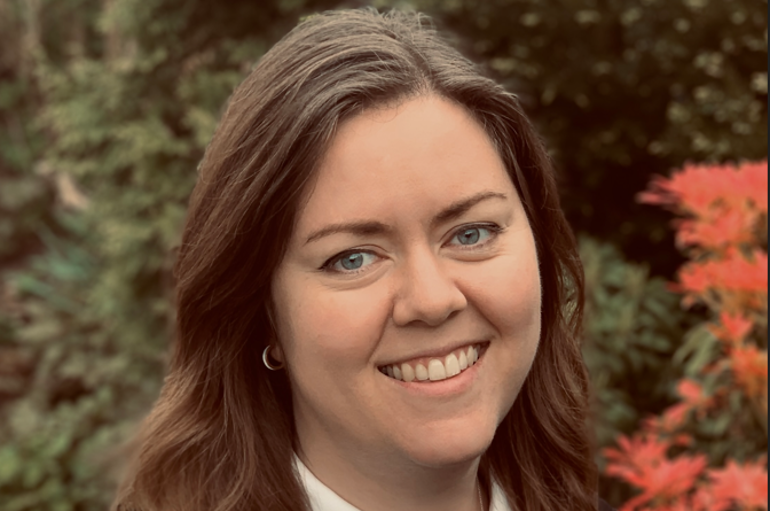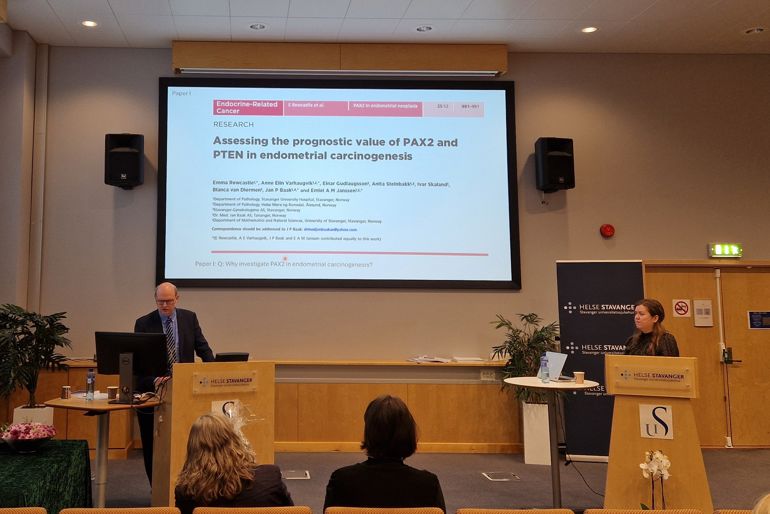Congratulations, Emma! First Defense in the PiV Project
Last friday Dr. Emma Rewcastle defended her thesis at Stavanger University Hospital / University of Stavanger. Title of the thesis: "From Research to Clinical Diagnostics: Developing and Validating Biomarkers and Artificial Intelligence for Pathology"

In 2022, the pathology department at Stavanger University Hospital was digitized. Tissue samples that were previously analyzed using a microscope are now evaluated on a screen. This has not only changed the way pathologists work but also opens up the possibility of using artificial intelligence (AI) as an aid in important diagnostic assessments.
The incidence of endometrial cancer has steadily increased worldwide and in Norway over the past few decades. In 80% of cases, endometrioid-type endometrial cancer is preceded by a lesion called endometrial hyperplasia. This can further be grouped into a low-risk and a high-risk variant for cancer development. The variants have different treatment options. The pathological assessment is based on a visual evaluation of microscopic characteristics and has been criticized for being subjective and less reproducible.
In the first study, we investigated whether the use of protein biomarkers, PAX2 and PTEN, could be used as additional markers to predict the progression of endometrial hyperplasia and endometrial cancer. In this study, we found that only PAX2 had significant prognostic value in predicting progression in endometrial hyperplasia. In our second study, we investigated whether developing an algorithm using AI could quantify features in endometrial hyperplasia and provide a risk score for the development of endometrial cancer. An application was developed using the software Visiopharm® to measure structural and cytological features in digital images of endometrial tissue. An algorithm was then developed for scoring the prognostic value. We observed that the application and algorithm (ENDOAPP) were as good as or better than current diagnostic criteria (WHO20, D-score).
Breast cancer is the most common form of cancer in Norway and globally. One of several prognostic markers used routinely includes measuring the proliferation markers Ki67 and mitoses. The mitotic count is used in the grading of breast cancer, and %Ki67 is used as a surrogate marker to distinguish between the different subtypes, luminal A (low Ki67) and luminal B (high Ki67). Particularly, Ki67 quantification has been criticized for lack of standardization and low reproducibility among laboratories. In our third study, we compared manual assessment of Ki67 with AI. We observed that automatic counting of Ki67 using AI was more prognostic compared to manual counting.
The final study was a collaboration with the DoMore project at the Institute for Cancer Genetics and Informatics at Oslo University Hospital. Here, the DoMore group developed a deep learning model for the automatic recognition and quantification of mitoses in cancer. When we investigated the prognostic value of the model, we found that automatic counting of mitoses (mitoses per mm²) is prognostic in several cancers including lung cancer and bladder cancer, in addition to breast cancer where it is already a known biomarker.
All studies require further validation before implementation in diagnostics, but the results show that both biomarkers and AI have a promising future in improving the diagnostic and prognostic assessment of breast cancer and endometrial hyperplasia.

Personal Information:
Emma Rewcastle started as a research fellow at the pathology department at Stavanger University Hospital in 2020. Recently, she has balanced her doctoral work alongside the role of section leader for the section for quantitative and molecular pathology.
The scholarship was funded by the Pathology in the West project, which is further funded by strategic research funds from Helse Vest.

Trial lecture: "Computational pathology: integrating multidisciplinary data – opportunities and challenges in understanding cancer biology and in clinical pathology applications"
Title of the thesis: "From Research to Clinical Diagnostics: Developing and Validating Biomarkers and Artificial Intelligence for Pathology"
Assessment Committee:
- 1st opponent: Associate Professor Elisabeth Wik, University of Bergen
- 2nd opponent: Professor Mark Arends, University of Edinburgh, UK
- 3rd member/committee chair: Professor Hanne R. Hagland, University of Stavanger
Supervisors:
- Main supervisor: Professor II Emiel Janssen, University of Stavanger
- Co-supervisor: Einar Gudlaugsson PhD, Stavanger University Hospital
- Co-supervisor: Ivar Skaland PhD, Stavanger University Hospital
- Co-supervisor: Associate Professor Sabine Leh, University of Bergen and Haukeland University Hospital
Here are recordings from Emma Rewcastle's defense on Friday, which was the first defense from the PiV project: